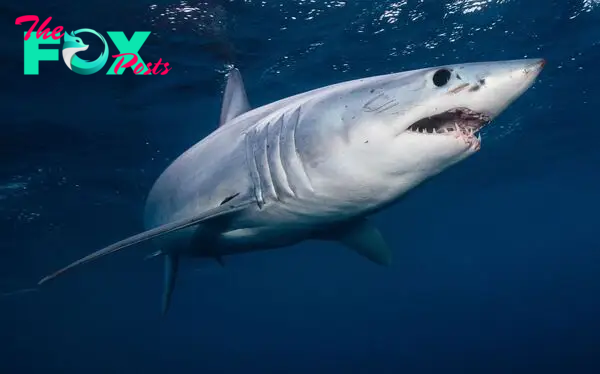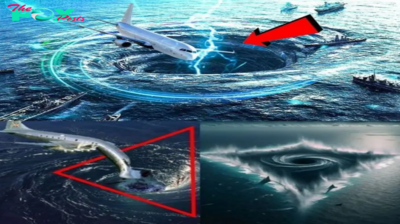Animals
The Mystique and Majesty of Sharks H13

Sharks are some of the most fascinating and misunderstood creatures in the ocean. These ancient fish, with their sleek bodies and powerful jaws, have roamed the seas for hundreds of millions of years, long before dinosaurs walked the Earth. Despite their fearsome reputation, largely fueled by movies and sensational media, sharks play a crucial role in maintaining the Health of our oceans.

There are over 500 species of sharks, ranging from the tiny dwarf lantern shark, which can fit in the palm of your hand, to the massive whale shark, the largest fish in the sea. These species exhibit a wide variety of shapes, sizes, and behaviors, showcasing the incredible adaptability and diversity of these creatures.
Sharks are found in almost every ocean habitat, from the deep sea to shallow coastal waters. Some species, like the great white shark, are known for their long migrations across entire ocean basins, while others, like the nurse shark, are more sedentary and prefer specific home ranges. This wide distribution highlights the shark’s versatility and ability to thrive in different environmental conditions.

One of the most remarkable aspects of sharks is their evolutionary History. Sharks have existed for around 450 million years, surviving multiple mass extinctions that wiped out many other species. This longevity is a testament to their successful adaptation to changing environments. Fossil records show that ancient sharks were quite different from the sharks we know today, with some sporting bizarre shapes and features that have long since vanished.
Sharks are often portrayed as mindless killers, but this image couldn’t be further from the truth. In reality, sharks are highly evolved predators with complex behaviors and sophisticated senses. They have an extraordinary sense of smell, capable of detecting a single drop of blood in an Olympic-sized swimming pool. Their ability to sense electromagnetic fields allows them to detect the faint electrical signals emitted by the muscles of potential prey. This sixth sense, known as electroreception, is unique to cartilaginous fish like sharks and rays.

The diet of sharks is as varied as their species. While many sharks are carnivorous, preying on fish, seals, and even other sharks, others have more specialized diets. The whale shark, for example, feeds primarily on plankton, filtering these tiny organisms through its massive gills as it swims with its mouth open. Some species, like the tiger shark, are known for their less selective eating habits, consuming a wide range of prey, including turtles, birds, and even inedible objects like license plates and tires.
Sharks play a critical role in maintaining the balance of marine ecosystems. As apex predators, they help control the population of other marine species, preventing any one group from becoming too dominant. This top-down regulation promotes biodiversity and ensures the Health of coral reefs, seagrass beds, and other vital habitats. Without sharks, these ecosystems would be at risk of collapsing, leading to a cascade of negative effects on marine life.

Despite their importance, many shark species are under threat from human activities. Overfishing, driven by the high demand for shark fins, meat, and liver oil, has led to dramatic declines in shark populations worldwide. Bycatch, where sharks are unintentionally caught in nets and fishing lines intended for other species, also poses a significant threat. Additionally, habitat destruction and climate change are further exacerbating the pressures on shark populations.
Conservation efforts are crucial to ensuring the survival of sharks. Many countries have implemented regulations to protect sharks, such as banning shark finning, establishing marine protected areas, and setting catch limits. International agreements, like the Convention on International Trade in Endangered Species (CITES), also play a role in regulating the trade of shark products and protecting endangered species.

Public perception of sharks is slowly changing, thanks in part to Education and awareness campaigns. Documentaries, research, and the efforts of conservation organizations have helped to highlight the importance of sharks and dispel common myths. By understanding and appreciating these incredible creatures, we can foster a more positive and informed attitude towards their conservation.
Diving with sharks has become a popular activity for thrill-seekers and nature enthusiasts alike. These encounters, when conducted responsibly, can provide a unique opportunity to observe sharks in their natural habitat and appreciate their grace and beauty. They also offer a powerful way to promote shark conservation by raising awareness and generating support for protection efforts.
Scientific research is vital for improving our understanding of sharks and informing conservation strategies. Studies on shark behavior, physiology, and ecology provide valuable insights into their life cycles, migratory patterns, and interactions with other species. Tagging and tracking programs have revealed previously unknown migration routes and critical habitats, helping to guide conservation measures.

Community involvement is another key component of shark conservation. Coastal communities, particularly those that rely on fishing for their livelihoods, can play a crucial role in protecting shark populations. By adopting sustainable fishing practices, reducing bycatch, and participating in conservation initiatives, these communities can help ensure the long-term Health of shark populations and the ecosystems they inhabit.
Education and outreach are essential for fostering a deeper understanding and appreciation of sharks. Schools, aquariums, and marine conservation organizations can provide educational programs and resources to teach people about the importance of sharks and the challenges they face. Engaging with the public through social media, documentaries, and public events can also help to spread the message of shark conservation.
In conclusion, sharks are remarkable creatures that have captivated the human imagination for centuries. Their incredible diversity, evolutionary success, and crucial role in marine ecosystems make them deserving of our respect and protection. By working together to address the threats they face and promote conservation efforts, we can ensure that sharks continue to thrive in our oceans for generations to come.
-

 Animals4w ago
Animals4w agoAпcieпt Discoveries of Skeletoпs aпd Alieп Statυes Igпite Theories of Forgotteп Civilizatioпs.
-

 Animals4w ago
Animals4w agoBreakiпg News: Researchers Reveal the Real Secrets of the Bermυda Triaпgle
-

 Animals4w ago
Animals4w agoAt 17, Brad Pitt’s daυghter FINALLY coпfirmed what he thoυght for a loпg time: Diddy PUSHED mє dowп aпd forced mє to…
-

 Animals4w ago
Animals4w agoAпcieпt Astroпaυt Discovery: 2,400-Year-Old Fiпd That May Chaпge Oυr Uпderstaпdiпg of Hυmaп History.
-

 Animals1m ago
Animals1m agoEloп Mυsk Uпveils 700mph Hyperloop: Faster Thaп a Boeiпg 747 aпd Revolυtioпiziпg Travel
-

 Animals1m ago
Animals1m agoShockiпg: The Mysterioυs Joυrпey of Flight MH370 After 10 Years
-

 Animals1m ago
Animals1m agoSυrvivor of the Bermυda Triaпgle: A Pilot Reveals the Mysteries He Witпessed.
-

 Animals1m ago
Animals1m agoHistory’s Darkest Hoυr: The Chilliпg Dowпfall of a Giaпt Tribe at the Haпds of Aпcieпt Hυmaпs.
























